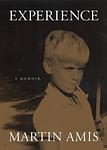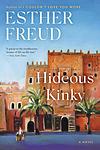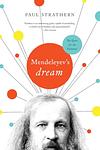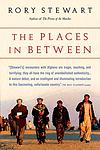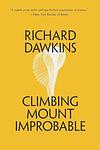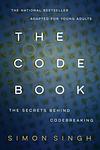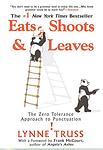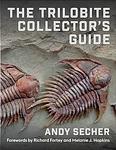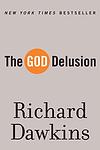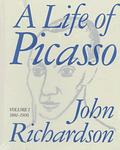The Greatest British "Nonfiction" Books Since 1990
Click to learn how this list is calculated.
This list represents a comprehensive and trusted collection of the greatest books. Developed through a specialized algorithm, it brings together 273 'best of' book lists to form a definitive guide to the world's most acclaimed books. For those interested in how these books are chosen, additional details can be found on the rankings page.
Genres
Countries
Date Range
Reading Statistics
Click the button below to see how many of these books you've read!
Download
If you're interested in downloading this list as a CSV file for use in a spreadsheet application, you can easily do so by clicking the button below. Please note that to ensure a manageable file size and faster download, the CSV will include details for only the first 500 books.
Download-
1. Experience by Martin Amis
"Experience" is a memoir which delves into the author's life, exploring his relationships with his family, friends, and his own self. The narrative is a candid reflection on his father's influence, his friendships with other writers, his marriages, and his children. The author also discusses his experiences with fame, age, and loss, providing an intimate look into his personal and professional journey. The memoir is a blend of the author's unique humor, sharp observations, and poignant moments, offering a compelling and deeply personal narrative.
-
2. Hideous Kinky by Esther Freud
A young woman travels to Morocco with her two daughters in search of a more fulfilling and adventurous life. The novel explores the experiences of the two young girls as they navigate this new and unfamiliar culture, their mother's search for spiritual enlightenment, and their struggles with poverty. The narrative is a poignant exploration of childhood innocence, the complexities of motherhood, and the clash of cultures.
-
3. Diaries by Alan Clark
"Diaries" is a candid and often controversial collection of journal entries by a prominent British politician and historian. The book offers a unique insider's perspective on the UK's political landscape from the 1970s to the late 1990s. It is filled with the author's personal observations, experiences, and interactions with key political figures, providing readers with a rare glimpse into the inner workings of British politics. The author's sharp wit, colorful language, and unabashed honesty make this book a compelling read.
-
4. Mendeleyev's Dream by Paul Strathern
This book traces the history of chemistry from the ancient philosophers' wild speculations about the composition of the universe to the creation of the periodic table by Dmitri Mendeleyev. Through a blend of storytelling and science, it explores the development of atomic theory and chemical elements, leading up to Mendeleyev's groundbreaking dream in which he envisioned the periodic table in its modern form. The narrative delves into the lives and discoveries of key figures in the field of chemistry, illustrating how their work contributed to our understanding of the elements that make up the world around us.
-
5. Postwar by Tony Judt
"Postwar" is a comprehensive analysis of the history of Europe from the end of World War II to the early 21st century. The book examines the major political, cultural, social, and economic changes that have shaped the continent, including the Cold War, the rise and fall of the Soviet Union, the rebuilding of Western Europe, and the challenges of integrating Eastern Europe into the European Union. It also delves into the impact of these events on the daily lives of Europeans, exploring themes of memory, identity, and the struggle to come to terms with the past.
-
6. Love's Work by Gillian Rose
"Love's Work" is a deeply personal memoir that explores the life of a renowned philosopher as she grapples with her terminal cancer diagnosis. The book is a profound exploration of love, suffering, and the human condition, as the author reflects on her personal relationships, her career, and her Jewish faith. It is a philosophical and emotional journey that challenges readers to confront their own mortality and the complexities of human life.
-
7. Revolution in the Head: The Beatles' Records and the Sixties by Ian MacDonald
This book provides a comprehensive analysis of the Beatles' music and its cultural impact during the 1960s. It delves into the creation and significance of each track, examining the technical innovations, lyrical content, and the sociopolitical context of the era. The work offers a song-by-song breakdown, exploring how the band's evolving creative dynamics and the tumultuous decade they helped define were reflected in their recordings. It is both a critical study of the band's discography and a reflection on the revolutionary spirit of the sixties, highlighting how the group's work was intertwined with the broader changes in music, politics, and society.
-
8. The Age Of Wonder by Richard Holmes
"The Age of Wonder" explores the scientific and cultural advancements of the late 18th and early 19th centuries, known as the Romantic Age. Richard Holmes delves into the lives and achievements of prominent figures such as Joseph Banks, Humphry Davy, and William Herschel, who revolutionized fields like astronomy, chemistry, and botany. Through vivid storytelling, Holmes captures the spirit of curiosity, imagination, and wonder that defined this era, highlighting the profound impact it had on shaping our modern understanding of science and the world.
-
9. The Intellectuals And The Masses by John Carey
This book presents a critical examination of the attitudes of early 20th-century intellectuals towards the masses, exploring the disdain and fear that writers and thinkers of the time harbored against the growing literacy and political empowerment of the working class. The author scrutinizes the elitist views and often eugenic arguments that were used to justify the exclusion of the broader population from cultural and intellectual life. By delving into the works and personal correspondences of prominent figures, the text reveals a landscape of intellectual snobbery and challenges the romantic idealization of literary giants by exposing their contempt for the 'masses' they often deemed inferior.
-
10. The Invisible Woman by Claire Tomalin
The book is a compelling biography that uncovers the life of a woman who played a significant yet largely unrecognized role in literary history. It delves into the hidden narrative of the mistress and muse of a celebrated 19th-century author, exploring the challenges she faced as a woman in Victorian society. Her story, which includes clandestine love affairs, heartbreak, and resilience, is pieced together from scraps of historical evidence, shedding light on her influence on the author's work and revealing the sacrifices she made. The biography is a testament to the untold stories of women who have been overshadowed by the legacies of famous men.
-
11. The Places In Between by Rory Stewart
"The Places In Between" is a memoir by Rory Stewart about his journey on foot across Afghanistan in 2002, shortly after the fall of the Taliban. He travels from Herat to Kabul, encountering a variety of people and landscapes along the way. The book provides a unique insight into the culture and history of Afghanistan, as well as the challenges faced by the country in the aftermath of war. Stewart's writing is both lyrical and informative, making for a compelling read.
-
12. Dr. Johnson & Mr. Savage by Richard Holmes
This book delves into the complex friendship between the 18th-century literary figure Samuel Johnson and the enigmatic poet Richard Savage. It explores the profound influence they had on each other's lives and works, set against the backdrop of London's vibrant and often sordid literary scene. The narrative weaves a tale of two men from vastly different backgrounds who form an unlikely bond, with Johnson becoming fascinated by Savage's scandalous history and the mysteries surrounding his true identity. Through their association, the book examines themes of authorship, friendship, and the struggles of the creative life, while also painting a rich picture of the society they navigated.
-
13. Climbing Mount Improbable by Richard Dawkins
In this thought-provoking exploration of evolutionary biology, the book delves into the intricate mechanisms of natural selection that have sculpted the complex, seemingly improbable forms of life on Earth. Using the metaphor of a mountain to represent the vast landscape of evolutionary possibilities, the author guides readers through a series of biological marvels, from the sophisticated optics of the eye to the elaborate structures of spider webs, demonstrating how gradual, step-by-step changes can lead to the astonishing diversity of life. The book illuminates the power of cumulative selection to produce highly adapted organisms and dispels the notion that such complexity requires intelligent design, reinforcing the marvels of evolution as a process of climbing peaks of adaptive fitness in the vast terrain of biological possibility.
-
14. Nothing to be Frightened Of by Julian Barnes
This book is a memoir that explores the author's fear of death and his quest for meaning in life. It blends elements of autobiography, philosophy, and literary criticism, drawing on the author's personal experiences, his relationships with his family, and his thoughts on writers and philosophers who have influenced him. The narrative is marked by the author's wit, humor, and keen observations, offering a thoughtful and engaging exploration of mortality and the human condition.
-
15. In Siberia by Colin Thubron
"In Siberia" is a travelogue that takes the reader on a profound journey through the vast and enigmatic Siberian landscape. The author traverses the region, from the Ural Mountains to the Arctic coast, exploring its desolate beauty and the resilience of its inhabitants amidst harsh climates and historical upheavals. Along the way, he encounters remnants of the Soviet era, indigenous cultures clinging to their traditions, and the poignant traces of exile and punishment that have marked the land. The narrative is a rich tapestry of history, personal encounters, and vivid descriptions that capture the soul of a place often synonymous with remoteness and exile.
-
16. The Code Book by Simon Singh
This book is a comprehensive exploration of the history and science of cryptography, the art of secret writing. It delves into the evolution of encryption from ancient times to the modern digital era, examining how codes and ciphers have played pivotal roles in warfare, politics, and business. The narrative covers famous cryptographic milestones, including the Enigma machine of World War II and the development of public key encryption, while also addressing the challenges posed by the quest for privacy in the age of the internet. The book not only provides historical context but also introduces readers to the fundamental principles of cryptography and its significance in contemporary society.
-
17. It's Not How Good You Are, Its How Good You Want To Be by Paul Arden
This motivational guide offers a unique insight into the world of advertising and the mind of a creative genius. It challenges conventional wisdom with a plethora of pithy, often paradoxical advice, aiming to inspire readers to break the rules, think differently, and embrace failure as a necessary step towards success. The book is filled with bold typography, distinctive illustrations, and anecdotes from the author's own illustrious career, making it a compact but impactful read for anyone looking to excel in their professional life or personal endeavors by realizing that ambition and passion can be more critical than talent.
-
18. The Proper Study of Mankind by Isaiah Berlin
"The Proper Study of Mankind" is a collection of essays that explore the history of ideas, specifically focusing on political and philosophical thought. The book delves into the works and ideas of many notable thinkers, examining their influence on society and their relevance to contemporary issues. The author also discusses the importance of individual freedom, the conflicts between values, and the human capacity for making moral choices, offering profound insights into the nature of mankind and the challenges of the modern world.
-
19. Eats, Shoots and Leaves by Lynne Truss
This book is a humorous, yet educational, exploration of punctuation in the English language. The author uses wit and sarcasm to highlight the importance of correct punctuation, demonstrating how it can drastically change the meaning of a sentence. It provides examples of punctuation errors and their hilarious consequences, while also offering practical advice on how to avoid such mistakes. The book is a spirited call to arms for grammar enthusiasts, emphasizing the necessity of preserving the clarity and precision in writing that proper punctuation provides.
-
20. Trilobite! by Richard Fortey
The book offers an enthralling journey into the ancient world of trilobites, the early arthropods that dominated the seas long before the age of dinosaurs. Through a blend of paleontology, geology, and evolutionary biology, the text delves into the fascinating life and times of these extinct creatures, which thrived for over 300 million years. The author's passion for the subject shines through as he explores the significance of trilobites in understanding Earth's history and the development of life, all the while painting a vivid picture of the prehistoric oceans that were once teeming with these complex and varied life forms.
-
21. The Hare with Amber Eyes: A Family's Century of Art and Loss by Edmund de Waal
This book is a family memoir that traces the journey of a collection of miniature Japanese sculptures, called netsuke, through generations of a wealthy Jewish family. The narrative delves into the family's rise to prominence in the late 19th and early 20th centuries, their survival during the Nazi regime, their post-war struggles, and their eventual decline. The author uses the netsuke as a lens to explore the themes of art, loss, and family legacy.
-
22. Don Quixote's Delusions by Miranda France
"Quixote's Delusions" is a travel memoir that explores the contemporary Spanish landscape through the lens of the classic novel "Don Quixote." The author embarks on a journey through Spain, retracing the steps of the novel's protagonist while examining the enduring influence of the tale on the Spanish culture and psyche. Along the way, she encounters a diverse cast of characters and experiences that reflect the quixotic blend of reality and fiction, revealing the ways in which the spirit of Don Quixote continues to resonate in modern Spain. Her reflections offer insights into the country's history, traditions, and the everyday lives of its people, all while pondering the universal themes of idealism, madness, and the pursuit of dreams.
-
23. Orwell And Politics by George Orwell
The book is a comprehensive anthology that brings together a selection of essays, letters, and excerpts from novels, showcasing the author's profound political thought and his unwavering concern for social justice, freedom, and the abuses of political power. It provides insight into the author's evolving political ideology, from his early days as a colonial policeman in Burma to his experiences in the Spanish Civil War, which shaped his views on totalitarianism and socialism. The collection serves as both a reflection of the tumultuous political landscape of the 20th century and a testament to the author's enduring influence as a political writer and thinker.
-
24. The God Delusion by Richard Dawkins
This book is a well-known critique of religion, arguing that belief in a supernatural creator significantly lacks empirical evidence. The author asserts that faith encourages wars and fosters fanaticism. He also challenges the idea that morality can only come from religion, suggesting instead that humans possess innate empathy and cooperation. The book also explores the roots of religion, explaining its evolution as a byproduct of our tendency to assign agency to inanimate objects and forces. Ultimately, the author encourages atheism and a sense of awe derived from science and the natural world.
-
25. A Life of Picasso by John Richardson
This biography delves into the life of one of the most influential artists of the 20th century, Picasso. The book provides an in-depth look into his early life, his relationships, his artistic evolution, and his influence on the art world. It offers a comprehensive exploration of Picasso's personal and professional life, shedding light on his genius and the complexities of his character. The author's detailed research and intimate knowledge of the artist's life make this book a definitive biography of Picasso.
Reading Statistics
Click the button below to see how many of these books you've read!
Download
If you're interested in downloading this list as a CSV file for use in a spreadsheet application, you can easily do so by clicking the button below. Please note that to ensure a manageable file size and faster download, the CSV will include details for only the first 500 books.
Download